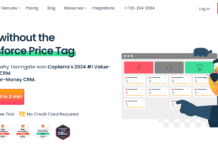How startups can survive in the age of Artificial Intelligence
Why Startups Must Adapt in the AI Era
Artificial intelligence has rapidly become one of the most disruptive forces in business. For entrepreneurs, the challenge is no longer about whether to adopt AI but about how to integrate it into their models effectively. The central question today is how startups can survive in the age of Artificial Intelligence while continuing to grow and compete. Unlike past waves of technology, AI is not just another tool but a transformative capability that is changing every aspect of how companies operate.
How AI Reshapes the Startup Landscape
Startups traditionally rely on speed, creativity, and lean operations to compete with larger companies. In the current environment, artificial intelligence is leveling the playing field by providing automation, data-driven decision-making, and predictive insights that were once available only to well-funded corporations. Understanding how startups can survive in the age of Artificial Intelligence requires looking at both the opportunities and the threats AI introduces.
AI offers immense potential by reducing costs, enhancing customer experiences, and creating new product categories. At the same time, it also increases competition because large corporations are adopting the same tools at scale. This dual nature makes strategic planning essential for startups.
Opportunities Created by AI for Startups
AI is opening doors for startups across industries. Some of the most promising opportunities include:
-
Customer service automation that reduces support costs.
-
AI-driven marketing tools that improve targeting and engagement.
-
Predictive analytics that allow better product development decisions.
-
Healthcare and fintech applications where personalization is key.
-
AI-powered content creation that scales branding and communication.
By leveraging these tools, startups can build leaner, smarter businesses. But the question remains: how startups can survive in the age of Artificial Intelligence when those same opportunities are available to competitors of every size.
Key Challenges for Startup Survival
While AI creates possibilities, it also presents unique challenges. Startups face several hurdles in this environment:
-
High competition from established tech giants who already dominate data access and cloud infrastructure.
-
Data quality concerns that determine whether an AI product is accurate and reliable.
-
Regulatory pressures around data privacy, ethics, and transparency.
-
Trust building with customers who may be skeptical about AI-driven services.
These issues emphasize that knowing how startups can survive in the age of Artificial Intelligence requires more than adopting the technology—it requires adopting the right strategy.
The Importance of Strategic Thinking
Startups must think beyond immediate product development and focus on long-term resilience. To thrive, they need to find niches where AI can provide unique value that larger corporations are not addressing. They must also build strong business models, focusing not only on technology but also on execution, customer needs, and compliance.
The central theme of this guide is understanding how startups can survive in the age of Artificial Intelligence by learning to balance innovation with sustainable business practices. Startups that combine creativity with adaptability will not only survive but also position themselves as leaders in a rapidly changing business environment.
What This Guide Will Cover
In the sections that follow, we will explore specific strategies and startup ideas that demonstrate how survival and growth are possible in this era. Each section will cover one critical aspect of adaptation, from competing with AI giants to leveraging no-code AI tools, from building strong customer relationships to creating regulatory resilience.
This structured approach will provide entrepreneurs with the insights they need to understand not just how startups can survive in the age of Artificial Intelligence, but how they can thrive and build profitable, sustainable businesses in 2025 and beyond.
Competing with AI Giants Advice
Why Competition with AI Giants Matters
In 2025, one of the biggest challenges for entrepreneurs is learning how startups can survive in the age of Artificial Intelligence when technology giants dominate the market. Companies like Google, Microsoft, and Amazon have vast resources, large data sets, and advanced AI research teams. They can deploy new solutions at a global scale almost instantly. Startups, on the other hand, must find ways to compete despite limited resources.
The question is not whether startups can challenge these giants head-on. Instead, the focus should be on identifying strategies that allow startups to carve out their space, build customer loyalty, and grow sustainably.
The Risk of Competing Head-On
Attempting to go directly against large corporations is a mistake that many early founders make. AI giants are already entrenched in areas such as cloud computing, search engines, and foundational AI models. A startup that tries to compete in the exact same fields is unlikely to succeed. Knowing how startups can survive in the age of Artificial Intelligence means understanding the difference between competing where the giants are strong and finding areas where they are weak.
Strategies to Compete Effectively
To survive, startups must be more agile, creative, and customer-focused. Several strategies can help achieve this:
-
Focus on niche markets: Instead of competing on a global scale, startups should identify specific industries or demographics that need tailored AI solutions. For example, while big tech may dominate general-purpose AI, a startup can specialize in AI tools for agriculture, education, or local healthcare.
-
Leverage deep domain expertise: Giants often spread their resources across many areas, which leaves gaps. A startup with deep knowledge of a particular field can design AI solutions that are far more effective than general-purpose systems.
-
Build strong customer relationships: While AI giants focus on mass adoption, startups can differentiate themselves by offering personalized customer experiences. This builds loyalty and ensures long-term growth.
-
Experiment with innovative interfaces: Large corporations tend to prioritize scalable, safe solutions. Startups have the advantage of agility and can test new types of AI interfaces, such as conversational tools tailored to specific audiences.
These strategies demonstrate practical ways for how startups can survive in the age of Artificial Intelligence while still standing out in crowded markets.
The Role of Agility
Agility is one of the greatest advantages startups have. Giants move slowly because of their size, but startups can pivot quickly, experiment with new models, and adapt to customer feedback almost in real time. In the age of AI, speed is critical, and agility often determines survival.
Case Study Examples
Some real-world examples show how startups have managed to compete successfully:
-
AI healthcare startups have carved out markets by offering specialized diagnostic tools, while large tech firms focus on general health platforms.
-
AI financial startups have succeeded by providing local, customer-focused solutions such as credit scoring for underserved markets.
-
AI-driven education platforms have thrived by tailoring learning experiences for specific age groups, something large corporations cannot do at scale.
These examples prove that startups can survive in the age of Artificial Intelligence by concentrating on specialization, personalization, and speed.
Long-Term Advantages for Startups
While giants dominate the infrastructure, startups have the chance to dominate customer-focused solutions. By keeping their operations lean, using affordable AI tools, and building unique business models, they can create defensible market positions. The lesson is clear: how startups can survive in the age of Artificial Intelligence depends not on trying to become giants themselves, but on excelling in areas where giants are unable or unwilling to compete.
Deep Domain Expertise to Defend Against AI Competition
Why Domain Expertise Matters
One of the clearest strategies for how startups can survive in the age of Artificial Intelligence is by leveraging deep domain expertise. While AI giants dominate general-purpose technologies, they often lack the specialized knowledge required to solve highly specific problems. This creates space for startups that understand an industry inside and out. By combining AI with domain knowledge, startups can build solutions that are far more practical and effective for their target audience.
The Limits of General-Purpose AI
Large corporations invest in building broad AI systems that can be applied across many sectors. These systems are powerful, but they are often too generic to solve unique challenges faced by niche industries. For instance, a general AI model may be good at analyzing text, but it may not understand the specialized vocabulary of law, medicine, or engineering. Knowing how startups can survive in the age of Artificial Intelligence involves using domain expertise to fill these gaps and deliver tailored solutions.
How Startups Can Apply Domain Knowledge
There are several ways startups can turn deep domain expertise into competitive advantage:
-
Specialized training data: Startups with access to industry-specific data can train AI models that outperform generic ones.
-
Industry-specific features: Adding features designed for a particular market, such as compliance tools for finance or patient safety protocols in healthcare, builds trust and adoption.
-
Targeted problem-solving: By focusing on one pain point that others overlook, startups can dominate smaller but highly profitable markets.
-
Integration with existing workflows: Startups can design AI tools that fit seamlessly into the systems professionals already use, making adoption smoother.
These strategies show how startups can survive in the age of Artificial Intelligence by applying expertise that tech giants lack.
Benefits of Domain Expertise
The advantages of domain-driven AI startups are clear:
-
Trust and credibility: Customers are more likely to adopt solutions built by experts who understand their industry.
-
Fewer competitors: Narrow markets attract less attention from big corporations, giving startups room to grow.
-
Higher value solutions: Tailored tools often deliver stronger results than one-size-fits-all platforms.
-
Customer loyalty: Businesses are more likely to stick with AI solutions that are designed specifically for them.
These benefits illustrate why domain expertise is one of the most important answers to how startups can survive in the age of Artificial Intelligence.
Case Study Examples
-
In healthcare, startups have succeeded by creating AI systems that focus on rare diseases or local medical needs.
-
In agriculture, AI startups have thrived by applying AI to soil monitoring, crop prediction, and weather forecasting.
-
In legal services, startups specializing in contract review and compliance have built successful businesses by tailoring AI to legal terminology and workflows.
Each case highlights how startups can survive in the age of Artificial Intelligence by focusing on industries where deep knowledge matters more than scale.
Long-Term Outlook
Domain expertise is not just a short-term advantage. As AI continues to expand, customers will increasingly demand solutions that understand their unique problems. Startups that build on specialized knowledge will remain relevant even as general-purpose AI improves. For entrepreneurs, the lesson is clear: survival and growth in the AI era depend on combining technical innovation with expert-level industry insight.
Importance of Founder Domain Knowledge in the AI Era
Why Founder Knowledge Shapes Startup Success
One of the most overlooked elements of how startups can survive in the age of Artificial Intelligence is the role of the founder’s domain knowledge. Startups are often led by individuals with strong technical skills but little understanding of the industries they aim to disrupt. While technical expertise is important, it is not enough on its own. In the AI era, founders who understand both the technology and the market they are serving are far more likely to succeed.
The Risks of Weak Domain Knowledge
When founders lack domain knowledge, their startups face serious challenges:
-
Misaligned products: They may build AI tools that do not match real customer needs.
-
Slow adoption: Customers may hesitate to trust founders who lack credibility in their field.
-
Poor differentiation: Without deep knowledge, startups risk building generic solutions that compete directly with AI giants.
-
Higher failure rates: Products created without true insight into industry pain points often fail to achieve product-market fit.
These risks highlight why founder expertise is central to how startups can survive in the age of Artificial Intelligence.
Combining AI Skills with Market Understanding
The strongest startups are those where founders balance technical AI skills with deep insight into customer industries. A founder who understands the complexities of healthcare, finance, or manufacturing can direct AI development toward the problems that matter most. By doing so, they not only improve adoption rates but also create defensible businesses.
Some strategies for founders include:
-
Partnering with industry experts: Founders without domain expertise should bring in advisors or co-founders who understand the target market.
-
Immersing in customer workflows: Spending time in the customer’s environment helps founders identify pain points that AI can solve.
-
Building credibility: Founders with domain knowledge can communicate better with investors and customers, gaining trust faster.
-
Designing focused solutions: Deep industry understanding allows startups to build highly specialized AI tools instead of generic products.
This approach is at the core of how startups can survive in the age of Artificial Intelligence.
Case Study Examples
-
Healthcare AI startups led by doctors or medical professionals have been far more successful than those without clinical knowledge. Their solutions are trusted because they reflect real patient and provider needs.
-
Fintech startups led by financial professionals have built tools that comply with regulations and match the realities of banking.
-
Agritech startups founded by agricultural experts have designed AI systems tailored to soil conditions, crop cycles, and weather patterns.
These examples illustrate that how startups can survive in the age of Artificial Intelligence is closely tied to the founder’s ability to bridge technology with practical industry expertise.
Long-Term Benefits of Domain-Savvy Founders
Founders with domain expertise create long-lasting competitive advantages:
-
Faster trust building with customers and partners.
-
Better decision-making when choosing AI applications to pursue.
-
Higher investor confidence because the startup demonstrates both technical and market understanding.
-
Resilience to competition since solutions are tailored and harder to replicate by generalist AI companies.
Ultimately, how startups can survive in the age of Artificial Intelligence depends not only on the technology they use but also on the people leading them. Founders with the right mix of technical and domain knowledge will build businesses that thrive well into the future.
Innovation in AI Interfaces for Startup Survival
Why Interfaces Matter for Startup Success
When discussing how startups can survive in the age of Artificial Intelligence, much attention is placed on algorithms, data, and models. Yet one of the most critical factors for adoption is the interface between the AI system and the user. Startups can differentiate themselves by creating innovative, user-friendly, and practical interfaces that make AI accessible to customers who may not be technically skilled.
The Challenge with Conventional Interfaces
Many AI systems are built with complex dashboards or technical commands that intimidate end users. This limits adoption, especially among small businesses or non-technical professionals. Startups that depend solely on traditional interfaces risk losing customers who find the tools difficult to use. To understand how startups can survive in the age of Artificial Intelligence, it is essential to focus on building systems that are simple, intuitive, and tailored to real-world workflows.
Types of Innovative Interfaces for Startups
Startups have a unique opportunity to experiment with AI interfaces in ways that larger corporations may avoid due to risk or scale. Some promising approaches include:
-
Conversational interfaces: AI systems that communicate with users through natural language, acting like digital assistants.
-
Voice-enabled systems: Useful in healthcare, manufacturing, or logistics where hands-free interaction is important.
-
Visual dashboards with predictive insights: Simplifying complex data into easy-to-understand graphics and forecasts.
-
AR and VR interfaces: Providing immersive AI-driven experiences for education, training, or product visualization.
-
Embedded interfaces: Integrating AI directly into existing business tools such as spreadsheets or CRMs.
These innovations show how startups can survive in the age of Artificial Intelligence by improving usability and customer satisfaction.
Why Startups Have the Advantage in Interface Design
Large corporations often focus on scalability, which leads to standardized interfaces that work broadly but lack personalization. Startups, however, can tailor interfaces to specific industries or customer needs. This agility gives them a distinct edge in building solutions that feel customized and approachable.
For example, an AI startup targeting small retail businesses might create a mobile-first interface with built-in recommendations, while another serving healthcare providers might develop a secure, voice-enabled assistant for clinical environments. Such customization is key to how startups can survive in the age of Artificial Intelligence when facing competition from giants.
Case Study Examples
-
AI writing tools gained rapid adoption by offering simple browser extensions rather than complex standalone platforms.
-
AI design assistants succeeded by creating drag-and-drop interfaces that even non-designers could use.
-
AI-driven analytics tools became popular when they transformed raw data into actionable insights through clear visualizations.
Each of these cases demonstrates that how startups can survive in the age of Artificial Intelligence often depends on making AI accessible, not just powerful.
Long-Term Potential of Interface Innovation
Interfaces determine how customers experience AI. Startups that excel in creating intuitive and engaging user experiences will achieve faster adoption and stronger loyalty. As AI becomes increasingly embedded in daily life, the demand for systems that “just work” will grow. For entrepreneurs, focusing on interface design is one of the most practical and profitable ways to ensure how startups can survive in the age of Artificial Intelligence and build businesses that thrive long-term.
How Startups Can Avoid Becoming AI Wrappers
The Problem with AI Wrappers
One of the most important lessons for how startups can survive in the age of Artificial Intelligence is avoiding the trap of becoming an AI wrapper. An AI wrapper is a startup that simply takes a pre-existing AI model from a larger company and builds a thin layer of interface or features around it. While this approach might generate short-term interest, it rarely creates lasting value. Startups that rely too heavily on external AI models without adding unique expertise or data risk being replaced once the larger company updates its tools or releases similar features.
Why AI Wrappers Struggle to Scale
AI wrappers face several challenges that prevent them from achieving sustainable growth:
-
Low defensibility: If the underlying model provider makes changes, the wrapper loses its foundation.
-
High competition: Dozens of startups can build similar wrappers around the same model, leading to market saturation.
-
Customer distrust: Businesses prefer working with providers who offer original technology and unique insights rather than repackaged tools.
-
Limited differentiation: Without proprietary data, the solution offers little reason for customers to choose it over others.
For these reasons, understanding how startups can survive in the age of Artificial Intelligence requires building more than just surface-level applications.
Strategies to Avoid Becoming an AI Wrapper
Startups can strengthen their position and avoid falling into this trap by adopting several strategies:
-
Develop proprietary datasets: Data is one of the strongest competitive advantages in AI. Startups that collect and refine their own datasets can train models that outperform generic ones.
-
Create domain-specific solutions: Focusing on industries like healthcare, finance, or logistics allows startups to design specialized systems that go beyond what general-purpose AI provides.
-
Integrate deeply into workflows: Instead of being a standalone tool, startups should design AI systems that become part of how businesses operate daily.
-
Offer unique insights: Adding analytics, compliance tools, or performance dashboards makes the solution more valuable than a simple wrapper.
-
Build brand trust: Establishing credibility through customer service, industry partnerships, and thought leadership helps differentiate startups from competitors.
These approaches illustrate how startups can survive in the age of Artificial Intelligence by building defensible, high-value products.
Examples of Sustainable Approaches
-
A healthcare startup that trains its own AI models on anonymized patient data provides stronger value than one using generic AI medical tools.
-
An agricultural AI company that integrates real-time data from local farms offers insights that cannot be replicated by general models.
-
A fintech AI startup that creates compliance-ready solutions tailored to specific regulations offers unique advantages compared to generic AI tools.
These cases prove that startups can survive in the age of Artificial Intelligence by going deeper into specific problems rather than relying on pre-built models alone.
Long-Term Outlook
AI wrappers may generate quick attention, but they rarely last. As large corporations release more powerful models and integrate them directly into products, wrappers will lose their relevance. For startups, survival depends on building proprietary advantages—whether through data, industry knowledge, or integration strategies. The lesson is clear: how startups can survive in the age of Artificial Intelligence is by moving beyond surface-level innovation and creating long-term value that cannot be easily replaced.
Regulatory Sandboxes for AI Startup Experimentation
Why Regulation Matters for Startups
When examining how startups can survive in the age of Artificial Intelligence, regulation becomes one of the most important factors. AI technologies are advancing rapidly, and governments around the world are introducing new policies to ensure responsible use. While regulation is necessary, it can also make it harder for startups to innovate. Unlike large corporations that have legal teams and compliance departments, startups often struggle with the cost and complexity of meeting regulatory requirements. This is where regulatory sandboxes play a critical role.
What Are Regulatory Sandboxes
A regulatory sandbox is a controlled environment where startups can test new technologies under the supervision of regulators but with relaxed compliance requirements. This framework allows startups to experiment with innovative AI products without facing the full burden of regulation from day one. Sandboxes were first used in fintech to encourage innovation while protecting consumers, and now similar models are being applied to AI. For entrepreneurs, regulatory sandboxes are an essential tool for how startups can survive in the age of Artificial Intelligence.
Benefits of Sandboxes for AI Startups
Participating in a regulatory sandbox offers several advantages for startups:
-
Reduced compliance burden: Startups can test products without needing to immediately meet every regulatory requirement.
-
Early collaboration with regulators: This helps startups understand legal expectations and build trust.
-
Faster time-to-market: By avoiding delays caused by lengthy approvals, startups can launch MVPs more quickly.
-
Risk mitigation: Working in a supervised environment lowers the chances of legal or ethical issues damaging a young company.
-
Access to support and mentorship: Many sandboxes provide guidance and connections to investors or partners.
These benefits highlight how startups can survive in the age of Artificial Intelligence by using sandboxes as safe testing grounds for disruptive ideas.
Global Examples of AI Regulatory Sandboxes
-
United Kingdom: The UK government has announced AI sandboxes modeled after its successful fintech version, giving startups a structured path for testing compliance.
-
Singapore: Known for innovation-friendly policies, Singapore offers AI sandboxes where startups can collaborate with regulators on ethical AI deployment.
-
European Union: As the EU introduces its AI Act, it is also experimenting with sandboxes to ensure small companies can comply without being shut out of the market.
-
United States: Some states are piloting industry-specific AI sandboxes in areas like healthcare and education.
These examples show how different regions are creating environments where startups can safely innovate while respecting consumer protection and privacy standards.
How Startups Should Approach Sandboxes
Startups should view regulatory sandboxes not just as legal shields but as strategic opportunities. By engaging with regulators early, they can shape policies, gain credibility, and show investors that they are building responsibly. To maximize benefits, startups should:
-
Clearly define the AI solution they want to test.
-
Be transparent about risks and data practices.
-
Collect feedback from both regulators and users.
-
Use sandbox participation as proof of compliance when pitching to customers or investors.
These practices reinforce how startups can survive in the age of Artificial Intelligence by building trust and demonstrating responsibility.
Long-Term Impact of Regulatory Sandboxes
As AI regulation becomes stricter, sandboxes will become increasingly important for innovation. Startups that take advantage of these frameworks will have an edge over competitors who struggle to navigate compliance alone. In the long run, sandboxes not only help startups survive but also thrive by enabling responsible scaling. The lesson is clear: how startups can survive in the age of Artificial Intelligence requires not only innovation but also adaptability to a changing regulatory landscape.
Innovation Ecosystems Supporting AI Startups
Why Innovation Ecosystems Matter
One of the most effective strategies for how startups can survive in the age of Artificial Intelligence is by embedding themselves in strong innovation ecosystems. An innovation ecosystem is the network of universities, investors, accelerators, corporations, and government programs that support entrepreneurship. For AI startups, these ecosystems provide resources that go beyond capital—they include access to talent, mentorship, regulatory guidance, and collaborative opportunities.
The Role of Ecosystems in AI Startup Growth
AI startups face unique challenges compared to other businesses. They require large datasets, computing infrastructure, and compliance with fast-changing regulations. No single startup can handle all these challenges alone. Innovation ecosystems help by providing the shared resources and partnerships needed to compete. For example, universities often provide access to cutting-edge research, while accelerators guide startups through early-stage development. This collaborative model is central to how startups can survive in the age of Artificial Intelligence.
Key Components of a Strong Ecosystem
A supportive innovation ecosystem typically includes:
-
Research institutions: Universities and labs that generate AI talent and research breakthroughs.
-
Incubators and accelerators: Programs that provide mentorship, seed funding, and structured growth opportunities.
-
Corporate partnerships: Larger companies often support startups through joint ventures, pilots, or acquisitions.
-
Investor networks: Venture capital firms and angel investors that specialize in AI.
-
Government support: Grants, subsidies, and regulatory sandboxes that encourage responsible innovation.
These components show how startups can survive in the age of Artificial Intelligence by leveraging collective support rather than working in isolation.
Global Examples of Innovation Ecosystems
-
Silicon Valley (United States): Home to leading AI research centers, tech giants, and venture capital, it remains a hub for AI startups.
-
Shenzhen (China): A rapidly growing hub that combines hardware manufacturing with AI development, making it attractive for robotics startups.
-
Bangalore (India): Known as the “Silicon Valley of India,” it offers a strong pool of AI engineers and supportive government programs.
-
London (United Kingdom): A center for fintech and AI regulation, supported by universities and investment firms.
-
Tel Aviv (Israel): Famous for its startup culture and cybersecurity expertise, with growing investments in AI.
These examples demonstrate that how startups can survive in the age of Artificial Intelligence often depends on being located in or connected to a thriving ecosystem.
The Benefits of Ecosystem Participation
Startups that actively participate in innovation ecosystems gain several competitive advantages:
-
Access to funding from investors who understand AI.
-
Talent pipelines from universities and research labs.
-
Networking opportunities with other entrepreneurs and potential customers.
-
Partnerships with corporates that can help with scaling.
-
Regulatory insights that reduce compliance risks.
By taking advantage of these benefits, startups strengthen their chances of long-term survival.
Long-Term Impact of Ecosystems
Innovation ecosystems not only help startups in the early stages but also support them as they scale. Startups that grow within strong ecosystems are more resilient, better funded, and more likely to attract global customers. Ultimately, how startups can survive in the age of Artificial Intelligence is closely tied to the networks they build and the environments they operate in.
Lean Startup with AI Product Innovation
Why Lean Startup Matters in the AI Era
Among the most important strategies for how startups can survive in the age of Artificial Intelligence is adopting the Lean Startup methodology. Startups working with AI often face long development cycles, high costs, and uncertain market demand. The Lean approach, which emphasizes rapid experimentation, customer feedback, and iterative product development, helps reduce these risks. By combining AI innovation with Lean Startup principles, founders can validate ideas faster and avoid wasting resources on untested assumptions.
The Challenges of AI Product Development
Building AI products presents unique difficulties compared to traditional software:
-
Data requirements: AI models need large, clean datasets, which are often expensive and hard to acquire.
-
Infrastructure costs: Training and deploying AI models requires significant computing power.
-
Unpredictable results: AI systems may behave differently depending on the data, making outcomes harder to guarantee.
-
Time to market: Without proper validation, startups risk spending years on a product that may not succeed.
These challenges make it essential to apply Lean principles to how startups can survive in the age of Artificial Intelligence.
Applying Lean Startup Principles to AI Innovation
The Lean Startup method can be applied to AI in several ways:
-
Build a Minimum Viable Product (MVP): Instead of developing a fully trained AI model, startups can launch with a basic version that demonstrates core value.
-
Validate with real customers: Early testing ensures the product solves actual problems rather than theoretical ones.
-
Iterate quickly: AI systems improve over time, and rapid feedback loops allow startups to refine features based on customer needs.
-
Measure impact: Instead of focusing only on technical accuracy, startups should track business outcomes such as revenue growth, time savings, or user engagement.
-
Pivot when necessary: If a product does not meet market needs, startups can shift direction before investing too heavily.
This approach demonstrates how startups can survive in the age of Artificial Intelligence while staying agile and resource-efficient.
Case Study Examples
-
AI writing assistants started with limited capabilities, such as grammar checking, before expanding into full content generation.
-
Healthcare AI startups began with basic diagnostic tools focused on single conditions before scaling into comprehensive health platforms.
-
AI-driven analytics startups launched with simple reporting features and gradually built predictive capabilities as customer demand grew.
These examples highlight that how startups can survive in the age of Artificial Intelligence is often by starting small, validating early, and expanding gradually.
Benefits of Lean AI Innovation
Startups that apply Lean principles to AI gain several long-term advantages:
-
Lower costs by reducing wasted development time.
-
Faster learning from real-world use cases.
-
Greater customer trust because products evolve based on feedback.
-
Higher investor confidence as evidence of market demand becomes clear.
-
Stronger adaptability in a rapidly changing AI landscape.
These benefits strengthen the case for combining Lean Startup thinking with AI innovation.
Long-Term Outlook
The Lean approach will continue to be vital as AI technologies evolve. Startups that emphasize experimentation, rapid feedback, and market validation will not only survive but thrive. The lesson is clear: how startups can survive in the age of Artificial Intelligence is by pairing powerful AI innovation with disciplined, customer-focused execution.
How AI Complements Lean Startup MVP Testing
Why MVP Testing Matters for Startups
A minimum viable product (MVP) is the foundation of the Lean Startup methodology. It allows founders to test their core idea with the least amount of resources. For entrepreneurs exploring how startups can survive in the age of Artificial Intelligence, MVP testing is even more critical. AI products often involve significant costs and uncertainties, so testing early versions with customers ensures that the solution provides real value before scaling further.
The Role of AI in MVP Development
Artificial Intelligence can make MVP testing more efficient and insightful in several ways:
-
Faster prototyping: Pre-trained AI models allow startups to build functional prototypes without needing years of research.
-
Automated feedback analysis: AI can process user feedback, reviews, or survey responses to identify key trends.
-
Simulations and predictions: Startups can use AI to simulate market reactions or predict adoption rates.
-
Data-driven insights: AI enables startups to track how users interact with the MVP and suggest improvements.
These capabilities highlight how startups can survive in the age of Artificial Intelligence by using AI itself to enhance product validation.
How AI Reduces MVP Risks
MVP testing without AI can still be resource-intensive and prone to error. AI helps mitigate these risks by:
-
Reducing development time through no-code or low-code AI platforms.
-
Lowering costs by reusing existing AI frameworks.
-
Improving decision-making with predictive analytics that show where to focus efforts.
-
Avoiding failure by identifying customer pain points earlier.
This demonstrates why AI is not just part of the product but also part of the process for how startups can survive in the age of Artificial Intelligence.
Case Study Examples
-
AI-based customer support tools often start as simple chatbots with limited functions. By testing user interactions, startups refine the product into advanced assistants.
-
AI-driven marketing platforms begin with basic campaign optimization features, then expand based on customer data and feedback.
-
AI-powered financial planning tools are first launched with simple budget trackers, gradually improving with predictive insights as users adopt them.
These examples prove that how startups can survive in the age of Artificial Intelligence is by testing small-scale versions and improving over time.
Benefits of Combining AI with MVP Testing
Startups that integrate AI into their MVP process gain several long-term benefits:
-
Faster market validation because prototypes can be launched quickly.
-
Better scalability since AI systems improve with more data.
-
Higher investor appeal due to early evidence of adoption and growth potential.
-
Stronger customer alignment because products evolve based on real user behavior.
These outcomes reinforce that survival in the AI age depends on learning fast and adapting effectively.
Long-Term Potential of AI-Enhanced MVPs
In the coming years, AI will not only power the products startups build but also the methods they use to validate them. Startups that combine MVP testing with AI-driven insights will move faster, adapt better, and waste fewer resources. The principle is simple but powerful: how startups can survive in the age of Artificial Intelligence is by treating AI not only as the end product but also as the engine of their experimentation and growth.
Answer Engine Optimization for Startups in the AI Era
Why Traditional SEO Is Changing
For years, startups have relied on search engine optimization (SEO) to reach customers online. But as artificial intelligence reshapes how people search for information, startups must rethink their strategies. Search engines are evolving into answer engines—AI-powered platforms that provide direct responses instead of just links. Understanding how startups can survive in the age of Artificial Intelligence now requires learning how to optimize for these new systems, a process known as Answer Engine Optimization (AEO).
What Is Answer Engine Optimization
Answer Engine Optimization focuses on structuring content so that AI-driven tools like ChatGPT, Google’s AI Overviews, or Microsoft Copilot can easily extract and deliver accurate answers. Unlike traditional SEO, which targeted keywords for ranking in lists of results, AEO targets direct responses. For startups, this means shifting content strategy to focus on clarity, authority, and structured data. It is an essential part of how startups can survive in the age of Artificial Intelligence, especially in digital marketing.
Why AEO Matters for Startups
AI answer engines are quickly becoming the default way users access information. If a startup is not optimized for these systems, it risks being invisible to potential customers. The benefits of AEO for startups include:
-
Increased visibility: Startups that appear as the chosen answer gain immediate credibility.
-
Higher trust: Being featured as a recommended response signals authority to users.
-
More efficient marketing: Instead of competing for long-tail search traffic, startups can capture customer attention directly.
-
Lower costs: Well-structured AEO strategies may reduce reliance on expensive ads.
These advantages show why startups must include AEO in their plans for how startups can survive in the age of Artificial Intelligence.
Key Strategies for AEO
Startups can implement several practices to improve their chances of being selected by answer engines:
-
Create question-based content: Anticipate user queries and provide direct, concise answers.
-
Use structured data: Implement schema markup so AI systems can parse and categorize content accurately.
-
Establish authority: Publish expert-backed insights, case studies, and thought leadership.
-
Prioritize clarity: Write in plain, scannable language that AI tools can easily extract.
-
Optimize for voice search: With AI-driven assistants growing, conversational content is increasingly important.
By applying these techniques, startups can position themselves as reliable sources in AI-driven search.
Case Study Examples
-
Local service startups have gained traction by answering common customer questions directly, such as “best AI marketing tool for small businesses.”
-
E-commerce startups increased visibility by structuring product details so AI answer engines could recommend them.
-
B2B startups secured leads by publishing concise industry guides that answer high-value business questions.
These examples confirm that how startups can survive in the age of Artificial Intelligence includes adapting to new forms of discoverability.
Long-Term Outlook for AEO
As AI answer engines continue to dominate online information, startups that embrace AEO will stand out while others fade into obscurity. The shift from SEO to AEO represents not just a trend but a permanent change in how users interact with digital content. For entrepreneurs, the takeaway is clear: how startups can survive in the age of Artificial Intelligence requires adopting new optimization strategies that align with AI-powered platforms.
Generative Engine Optimization Strategies for Startups
Why Generative Engines Matter for Startups
Generative engines—AI-driven platforms that create tailored responses, summaries, or recommendations—are changing how customers discover businesses. Unlike traditional search, generative engines provide direct, conversational answers, often blending multiple sources into one output. For entrepreneurs, this shift creates both challenges and opportunities. To understand how startups can survive in the age of Artificial Intelligence, it is essential to explore Generative Engine Optimization (GEO).
What Is Generative Engine Optimization
Generative Engine Optimization is the practice of making content accessible, accurate, and useful for AI systems that generate responses. Instead of ranking websites based on keywords alone, generative engines prioritize sources that are trustworthy, structured, and aligned with user intent. For startups, this means crafting digital assets that AI can easily integrate into its outputs. GEO is becoming an important extension of marketing strategy and a core element of how startups can survive in the age of Artificial Intelligence.
Why GEO Is Critical for Startups
AI-generated answers are replacing traditional search results, which reduces visibility for companies that are not optimized. GEO ensures that startups remain discoverable when customers rely on generative tools. Benefits include:
-
Increased discoverability: Startups can appear as the recommended solution in AI-generated content.
-
Authority building: Being cited by generative engines enhances brand credibility.
-
Customer engagement: GEO allows startups to connect with audiences through AI-driven recommendations.
-
Competitive advantage: Many competitors are still focused only on SEO, giving early adopters of GEO a head start.
This highlights why GEO is central to how startups can survive in the age of Artificial Intelligence.
Key GEO Strategies for Startups
Startups can take several practical steps to optimize for generative engines:
-
Produce authoritative content: Ensure blogs, case studies, and product pages include accurate, verifiable insights.
-
Use structured data and metadata: Generative engines rely on well-organized content to provide relevant answers.
-
Focus on niche expertise: Generative engines favor specialized sources when producing tailored responses.
-
Prioritize clarity and conciseness: Content should be easy for AI systems to summarize and repurpose.
-
Diversify content formats: Offering text, video, and audio increases the chance of being included in AI-generated outputs.
By implementing these methods, startups strengthen their presence in AI-powered discovery channels.
Case Study Examples
-
AI-driven marketing agencies optimized their content for GEO by publishing clear, data-backed reports that AI tools frequently cite.
-
E-commerce startups structured product pages with detailed specifications, enabling generative engines to recommend them during product searches.
-
Educational startups created structured guides and FAQs, ensuring they appeared in AI-generated learning resources.
These cases illustrate how startups can survive in the age of Artificial Intelligence by aligning their content with the needs of generative systems.
Long-Term Outlook for GEO
Generative engines will continue to expand across industries, from e-commerce and education to finance and healthcare. Startups that embrace GEO will secure visibility, trust, and authority, while those relying only on old SEO methods may fade into the background. The lesson is clear: how startups can survive in the age of Artificial Intelligence is by preparing for a world where AI platforms, not just human users, consume and interpret their content.
AI Optimization Beyond Traditional SEO for Startups
Why SEO Alone Is No Longer Enough
For years, startups have depended on search engine optimization to attract visibility and customers. But as artificial intelligence transforms the way people search and consume content, traditional SEO strategies are losing effectiveness. Modern AI-driven systems go beyond keywords and rankings, focusing instead on context, intent, and relevance. Understanding this shift is critical for how startups can survive in the age of Artificial Intelligence.
What Is AI Optimization
AI Optimization (AIO) is the practice of preparing digital content, products, and business processes for discovery and integration by AI-driven systems. Unlike SEO, which mainly caters to human users through search engines, AIO ensures that startups remain visible in AI-powered tools, assistants, and answer engines. This includes optimizing data structures, ensuring content clarity, and aligning business models with AI-driven recommendation systems.
Why Startups Need AI Optimization
Startups that rely only on traditional SEO risk invisibility in a world dominated by AI discovery. Benefits of AI Optimization include:
-
Enhanced discoverability: Ensures startups appear in AI-powered recommendations.
-
Future readiness: Prepares startups for the growing role of AI in digital experiences.
-
Stronger customer reach: Extends visibility beyond search engines into voice assistants, chatbots, and generative engines.
-
Competitive advantage: Early adoption of AIO provides an edge over businesses still relying on outdated methods.
These benefits highlight why AI Optimization is central to how startups can survive in the age of Artificial Intelligence.
Core Elements of AI Optimization
To effectively optimize for AI, startups should focus on:
-
Structured data: Ensuring websites and content use schema markup to help AI parse information.
-
Clear, concise answers: Writing content that AI can extract easily for responses.
-
Multi-format presence: Offering text, audio, video, and visual assets to increase integration opportunities.
-
Domain authority: Building credibility through citations, case studies, and partnerships.
-
Customer intent focus: Creating content that directly addresses the real questions customers are asking.
By prioritizing these areas, startups align themselves with how AI systems evaluate and surface information.
Case Study Examples
-
Fintech startups optimized their FAQs with structured data, enabling AI-driven banking assistants to recommend their services.
-
Healthcare startups published clear, compliant medical content that AI tools used in generating health-related advice.
-
E-commerce startups optimized product descriptions for voice assistants, making it easy for AI systems to recommend their products in shopping queries.
These examples prove that how startups can survive in the age of Artificial Intelligence depends on embracing optimization strategies that go beyond SEO.
Long-Term Outlook
The future of digital discoverability lies in AI-driven systems. Startups that adopt AI Optimization now will be better positioned to thrive as consumer behavior shifts further toward AI assistants and generative tools. The lesson is clear: how startups can survive in the age of Artificial Intelligence is by preparing for a future where visibility depends on being understood by machines as much as by humans.
How Startups Should Adapt Marketing in the AI Era
Why Marketing Must Evolve with AI
Marketing has always been about reaching customers where they are. In 2025, customers are increasingly engaging with AI-driven platforms, from virtual assistants to generative search tools. This shift is transforming how businesses connect with their audiences. Understanding how startups can survive in the age of Artificial Intelligence requires rethinking marketing strategies to align with AI-driven discovery and personalization.
The Decline of Traditional Marketing Approaches
Traditional marketing tactics—such as keyword-heavy blog posts, generic email blasts, or standard digital ads—are becoming less effective. AI tools filter content, predict user preferences, and recommend products based on highly personalized data. Startups that continue using outdated methods risk becoming invisible. To thrive, they must adapt marketing strategies to match how AI influences consumer decision-making.
Key Ways Startups Can Adapt Marketing
To understand how startups can survive in the age of Artificial Intelligence, founders should focus on several AI-adapted marketing strategies:
-
AI-powered personalization: Tailor campaigns, offers, and content to individual users based on behavior and data insights.
-
Conversational marketing: Use AI chatbots and assistants to engage with customers in real time, offering quick answers and personalized guidance.
-
Voice search optimization: Adapt content so AI-driven voice assistants can easily recommend products and services.
-
Predictive analytics for campaigns: Leverage AI tools to forecast campaign success and allocate resources effectively.
-
Content designed for AI discoverability: Create structured, clear, and authoritative content that AI systems can extract for recommendations.
These methods demonstrate how startups can survive in the age of Artificial Intelligence by marketing smarter, not louder.
Case Study Examples
-
E-commerce startups use AI personalization engines to recommend products based on browsing history and purchase patterns.
-
SaaS startups employ AI chatbots to guide leads through onboarding processes, improving conversion rates.
-
Local service startups optimize their content for voice search, ensuring they are discovered through smart speakers.
-
Marketing agencies adopt AI-driven analytics to track engagement and adjust campaigns in real time.
Each case illustrates that adapting marketing strategies is a practical way for how startups can survive in the age of Artificial Intelligence.
Benefits of AI-Adapted Marketing
Startups that embrace AI-driven marketing gain multiple advantages:
-
Higher conversion rates through targeted, relevant messaging.
-
Lower customer acquisition costs by eliminating wasted ad spend.
-
Greater customer loyalty due to consistent, personalized experiences.
-
Improved decision-making with predictive analytics guiding campaigns.
-
Increased visibility in AI-driven platforms and search engines.
These benefits highlight why adapting marketing is central to startup survival.
Long-Term Outlook for Marketing in the AI Era
As AI continues to advance, customer expectations will rise. They will expect brands to understand their preferences, provide instant responses, and deliver highly personalized experiences. Startups that fail to adapt will struggle to compete, while those that embrace AI-driven marketing will thrive. The lesson is clear: how startups can survive in the age of Artificial Intelligence depends on adopting marketing strategies that align with the new reality of AI-powered consumer engagement.
Startup Strategies for AI Search Discoverability
Why AI Search Matters for Startups
Search is no longer limited to typing keywords into a browser. AI-driven search engines and assistants now provide direct answers, summaries, and recommendations. For entrepreneurs, this means that survival depends on adapting to new discovery channels. To understand how startups can survive in the age of Artificial Intelligence, it is crucial to adopt strategies that ensure visibility in AI-powered search environments.
The Shift from Traditional Search to AI Search
In traditional search, startups could compete by targeting keywords and optimizing websites for rankings. In AI search, visibility depends more on structured data, authority, and clarity. Instead of displaying a list of links, AI assistants often deliver a single summarized answer. If startups are not included in these responses, they risk being invisible to their customers. This evolution is reshaping how startups can survive in the age of Artificial Intelligence.
Core Strategies for AI Search Discoverability
Startups can take practical steps to optimize their presence in AI-driven search systems:
-
Use structured data: Schema markup helps AI understand and categorize content for answers.
-
Answer customer questions directly: Content should be written in clear, concise language that responds to specific queries.
-
Prioritize niche authority: Focus on becoming a recognized expert in a narrow field where AI engines prefer specialized answers.
-
Build trust signals: Back up claims with data, case studies, and credible sources that AI tools recognize.
-
Optimize for multi-modal search: Include videos, audio, and visuals, since AI systems increasingly use multiple content formats.
By applying these strategies, startups improve their chances of being included in AI-driven responses.
Case Study Examples
-
Healthcare startups with structured medical content often appear in AI-generated health summaries.
-
Fintech startups that answer user questions about loans or savings strategies gain visibility in financial AI search engines.
-
E-commerce startups that optimize product listings with detailed specifications are frequently recommended by AI shopping assistants.
-
Educational startups providing structured guides are highlighted in AI-driven learning recommendations.
These examples show how startups can survive in the age of Artificial Intelligence by positioning themselves for AI search.
Benefits of AI Search Optimization
Optimizing for AI search provides startups with several benefits:
-
Increased visibility in AI-powered platforms where users spend more time.
-
Improved credibility by being cited as an authoritative source.
-
Faster customer acquisition through direct AI recommendations.
-
Lower dependence on paid advertising as organic discoverability improves.
-
Long-term resilience as search behavior continues to evolve.
These outcomes highlight why search optimization is now about AI discoverability, not just traditional SEO.
Long-Term Outlook
AI search will become the default method of finding information, products, and services. Startups that adapt early will secure strong positions in AI-driven ecosystems, while those relying on outdated SEO methods may struggle to remain visible. The lesson is clear: how startups can survive in the age of Artificial Intelligence depends on being ready for the future of search, where AI assistants decide which businesses customers see first.
How Startups Can Use AI for Competitive Advantage
Why Competitive Advantage Matters in the AI Era
In highly competitive markets, survival depends on differentiation. For entrepreneurs, the key question is how startups can survive in the age of Artificial Intelligence while competing against both established corporations and new entrants. The answer lies in using AI not just as a tool but as a foundation for building unique competitive advantages.
The Role of AI in Creating Differentiation
Artificial Intelligence offers startups the ability to innovate faster, serve customers better, and operate more efficiently than traditional methods. However, simply using AI is not enough—many businesses are adopting similar technologies. The true competitive edge comes from how startups apply AI in ways that align with their unique strengths, industry focus, and customer needs. This understanding is central to how startups can survive in the age of Artificial Intelligence.
Strategies to Build AI-Driven Competitive Advantage
Startups can gain a defensible position by adopting strategies such as:
-
Specialized solutions: Focus on solving specific industry problems that larger companies overlook.
-
Proprietary data: Collect unique datasets that competitors cannot access, improving the accuracy and value of AI models.
-
Faster innovation cycles: Use AI for rapid prototyping, testing, and iteration to stay ahead of competitors.
-
Personalized customer experiences: Apply AI to deliver hyper-personalized services that create loyalty.
-
Cost efficiency: Leverage AI automation to reduce expenses and offer more competitive pricing.
These methods demonstrate how startups can survive in the age of Artificial Intelligence by building advantages that are difficult for others to replicate.
Case Study Examples
-
AI-driven logistics startups differentiate by optimizing last-mile delivery with local data, offering better performance than global competitors.
-
Healthcare AI startups gain advantage by tailoring tools for niche patient groups, such as elderly care or chronic disease management.
-
Retail AI startups succeed by delivering personalized shopping experiences that large e-commerce platforms cannot replicate at scale.
-
Financial AI startups provide specialized fraud detection or credit scoring for underserved markets, standing apart from general fintech solutions.
These examples highlight how startups can survive in the age of Artificial Intelligence through focused innovation.
Benefits of AI as a Competitive Tool
Startups that strategically apply AI gain several key benefits:
-
Market credibility by positioning themselves as innovators in their industry.
-
Customer loyalty through personalization and unique solutions.
-
Investor confidence by showing a defensible business model.
-
Resilience against competitors who use generic AI applications.
-
Scalability with AI systems that grow stronger as they process more data.
These benefits show why AI is more than just a tool—it is the foundation of long-term competitiveness.
Long-Term Outlook for Competitive Advantage
In the future, AI will become standard across industries, but startups that use it strategically will continue to lead in innovation. The question of how startups can survive in the age of Artificial Intelligence will shift from adoption to differentiation. Those who build lasting competitive advantages—through specialization, proprietary data, and customer trust—will not only survive but thrive as leaders in their markets.
FAQ on How Startups Can Survive in the AI Era
Introduction to the FAQ
As artificial intelligence becomes the backbone of global industries, entrepreneurs often ask practical questions about survival and growth. The central theme of this guide is how startups can survive in the age of Artificial Intelligence, but survival also means finding ways to adapt, differentiate, and thrive. This FAQ addresses the most common questions founders ask when preparing to compete in the AI-driven economy.
1. What are the most effective strategies for how startups can survive in the age of Artificial Intelligence?
The most effective strategies include focusing on niche markets, building proprietary data, and offering unique solutions that larger corporations overlook. Startups that combine agility with domain expertise stand out. Another key strategy is leveraging Lean Startup methods—launching small, testing quickly, and adapting based on feedback. These approaches illustrate how startups can survive in the age of Artificial Intelligence by building defensible business models.
2. How much funding is needed for startups to survive in the AI era?
Funding needs vary, but thanks to cloud computing and no-code platforms, initial costs are lower than in the past. Some startups can test minimum viable products with $20,000–$50,000, while others in healthcare or finance may require hundreds of thousands to ensure compliance. Smart resource allocation is central to how startups can survive in the age of Artificial Intelligence without overspending too early.
3. Do founders need technical backgrounds to ensure startup survival in AI?
Not necessarily. While technical skills are useful, many founders succeed by combining business insight with domain expertise. No-code platforms allow non-technical entrepreneurs to build functional AI products. What matters more is vision, market knowledge, and adaptability. This proves how startups can survive in the age of Artificial Intelligence by focusing on solving customer problems rather than relying solely on coding skills.
4. How can startups attract their first customers in the AI era?
Customer acquisition begins with solving urgent problems. Startups must show how their AI product saves money, saves time, or drives growth. Early adopters are usually found in niche markets, where personalized attention and case studies build trust. This practical approach demonstrates how startups can survive in the age of Artificial Intelligence through customer-centric marketing and tailored solutions.
5. What are the biggest risks for startups in the AI era?
The main risks include regulatory challenges, poor-quality data, lack of differentiation, and high competition. Startups that fail to manage privacy concerns or ethical AI practices may lose credibility. Another risk is scaling too fast without validating demand. Awareness of these risks is vital for how startups can survive in the age of Artificial Intelligence with resilience and foresight.
6. How do investors evaluate whether startups can survive in the age of AI?
Investors look for strong problem-solution fit, proprietary data, clear revenue models, and evidence of product-market validation. They want proof that the startup offers something defensible against large corporations. Ethical AI practices and compliance are also highly valued. Startups that check these boxes reinforce investor confidence in how startups can survive in the age of Artificial Intelligence.
7. What industries offer the best opportunities for startup survival in the AI era?
Industries with strong data and high demand for automation are the most promising. These include healthcare, finance, e-commerce, education, and logistics. Startups that specialize in these fields often find sustainable revenue paths. Choosing the right industry focus is critical for how startups can survive in the age of Artificial Intelligence while building profitable long-term businesses.
Long-Term Outlook for Startup Survival
The overall lesson is clear: how startups can survive in the age of Artificial Intelligence depends on combining innovation with strategic execution. Startups that embrace domain expertise, optimize for AI-driven discovery, and maintain ethical practices will not only survive but also thrive. For entrepreneurs, the AI era is not just a challenge but also one of the greatest opportunities in history.
Conclusion – Building Profitable Startup Strategies in the AI Era
The Journey of Startup Survival in the AI Age
Throughout this guide, we have explored practical strategies and opportunities showing how startups can survive in the age of Artificial Intelligence. The central theme has been that survival does not mean simply keeping up it means thriving by building competitive advantages, finding niches, and innovating faster than larger corporations. The AI era presents challenges, but it also opens doors for founders who act with clarity, focus, and adaptability.
Core Lessons for Startup Survival
Several principles have emerged repeatedly as essential for how startups can survive in the age of Artificial Intelligence:
-
Focus on real problems: Success comes from solving pressing customer needs with AI-driven solutions.
-
Leverage domain expertise: Industry-specific knowledge creates credibility and defensibility.
-
Adopt Lean Startup principles: Test quickly, learn from customers, and refine products without over-investing early.
-
Build trust through ethics and compliance: Responsible AI practices build long-term confidence with customers and investors.
-
Innovate in usability: Interfaces, customer experience, and personalization are just as important as algorithms.
These lessons highlight that technology alone does not guarantee survival—execution and strategy are equally critical.
Why Startups Have the Advantage
Although AI giants dominate global markets, startups have advantages in speed, creativity, and customer focus. Large corporations often move slowly, while startups can pivot rapidly, experiment with innovative solutions, and target niche audiences. This agility explains how startups can survive in the age of Artificial Intelligence despite intense competition.
Industries with High Potential
Several industries stand out as fertile ground for AI-driven startups:
-
Healthcare: Virtual health assistants, diagnostic tools, and patient monitoring.
-
Finance: Fraud detection, personal financial planning, and risk management.
-
E-commerce: AI chatbots, recommendation engines, and personalized shopping.
-
Education: Adaptive learning platforms and virtual tutoring.
-
Marketing: Generative content creation and AI-driven personalization.
Startups that specialize in these sectors will benefit from strong customer demand and clear monetization paths.
Long-Term Sustainability
Long-term survival is not about short-term hype. Many startups fail because they build AI wrappers or chase trends without solving real problems. The ones that endure are those that build unique datasets, align AI with customer needs, and create products that deliver measurable value. This is the foundation of how startups can survive in the age of Artificial Intelligence and build lasting companies.
Final Takeaway for Entrepreneurs
The AI era is both a challenge and an opportunity. Startups that succeed will be those that treat AI as more than a buzzword. They will view it as a tool to solve meaningful problems, reduce costs, and create scalable solutions. The future belongs to founders who balance vision with execution, ethics with innovation, and agility with strategy.
For entrepreneurs looking ahead, the lesson is simple: how startups can survive in the age of Artificial Intelligence is not by imitating giants but by carving their own paths—focused, specialized, and driven by customer needs. Those who master this balance will not just survive but will lead the next wave of business innovation in 2025 and beyond.
The Role of Startupik
For entrepreneurs exploring AI startup ideas and looking for reliable guidance, Startupik is a valuable platform offering resources and insights to strengthen financial and strategic planning. The platform highlights innovative ventures, publishes credible articles on entrepreneurship, and shares proven methods for building resilient, profitable businesses. By leveraging Startupik’s knowledge base, founders can better understand why cash flow management is critical and how financial discipline contributes to the success of modern AI startups. These lessons are essential for how startups can survive in the age of Artificial Intelligence, where financial control and adaptability are as important as innovation.
Startupik also serves as a hub for discovering new opportunities in the startup ecosystem. For anyone considering AI startup ideas, it provides actionable advice, expert perspectives, and case studies that demonstrate how innovation and financial responsibility work together. By applying these insights, founders strengthen their strategies for how startups can survive in the age of Artificial Intelligence and build profitable, scalable ventures.
Visit Startupik today to explore more insights and discover innovative startups that are shaping the future of entrepreneurship and artificial intelligence.
Top AI startup ideas to launch in 2025 that actually make money

















































